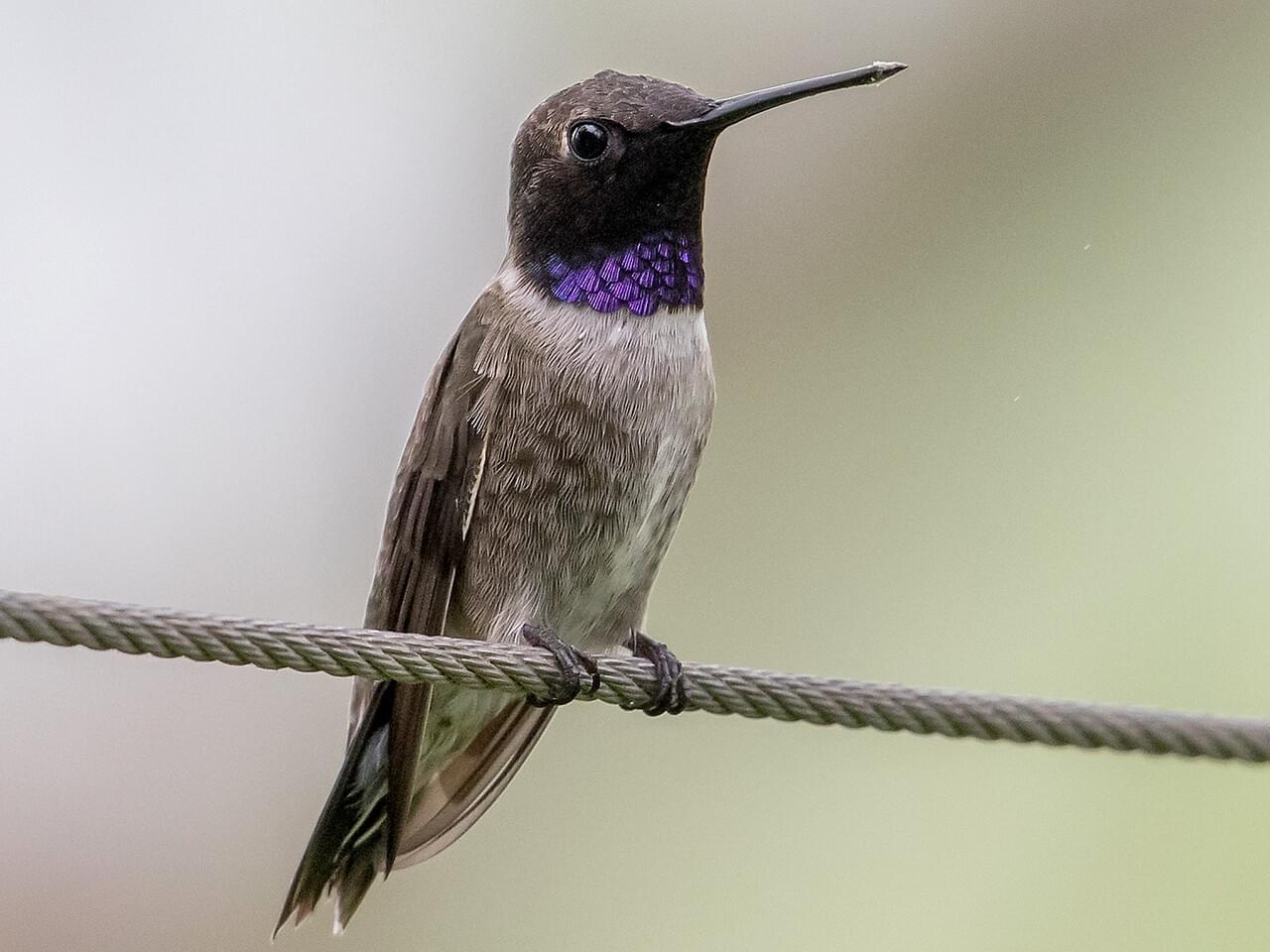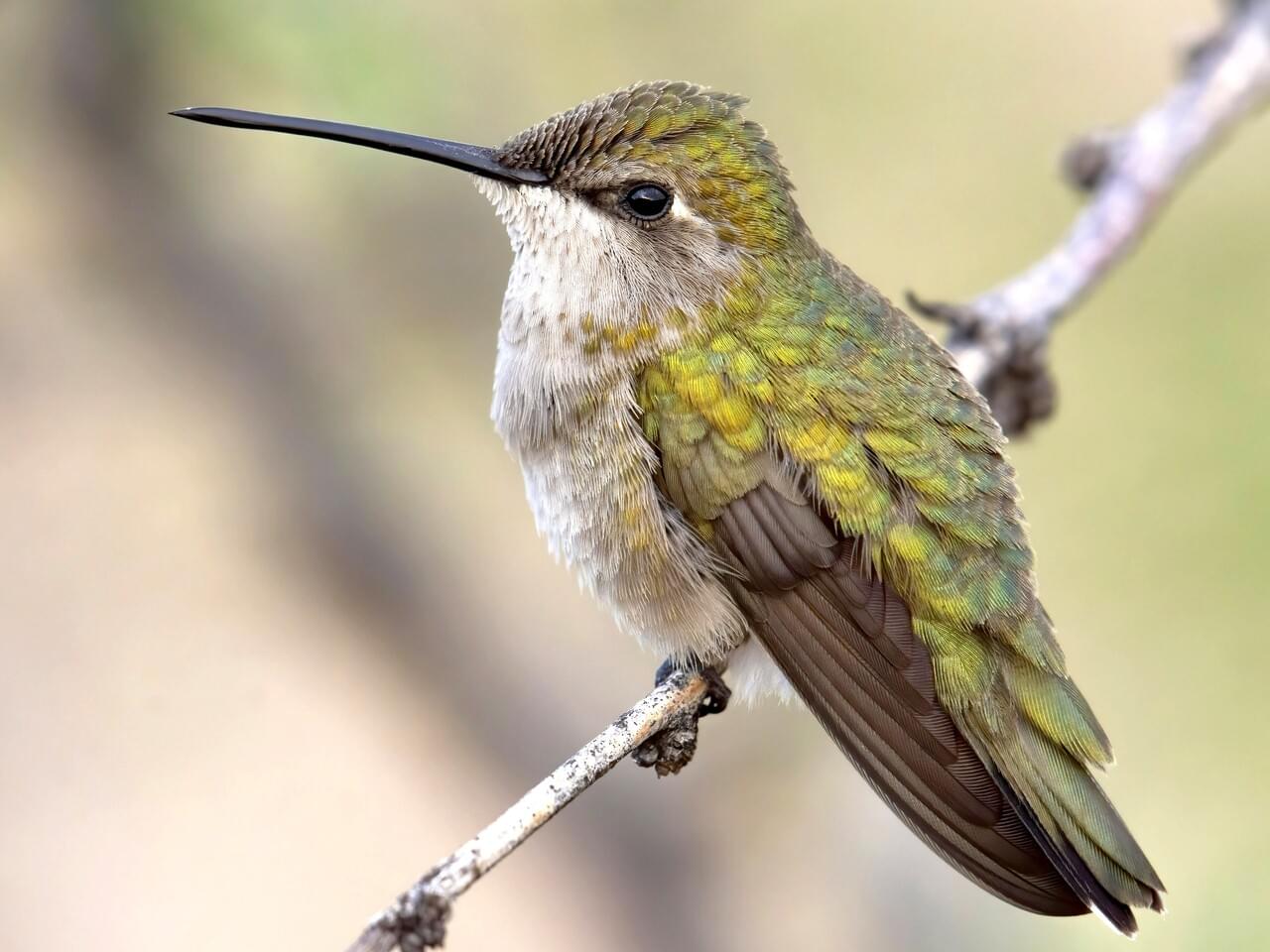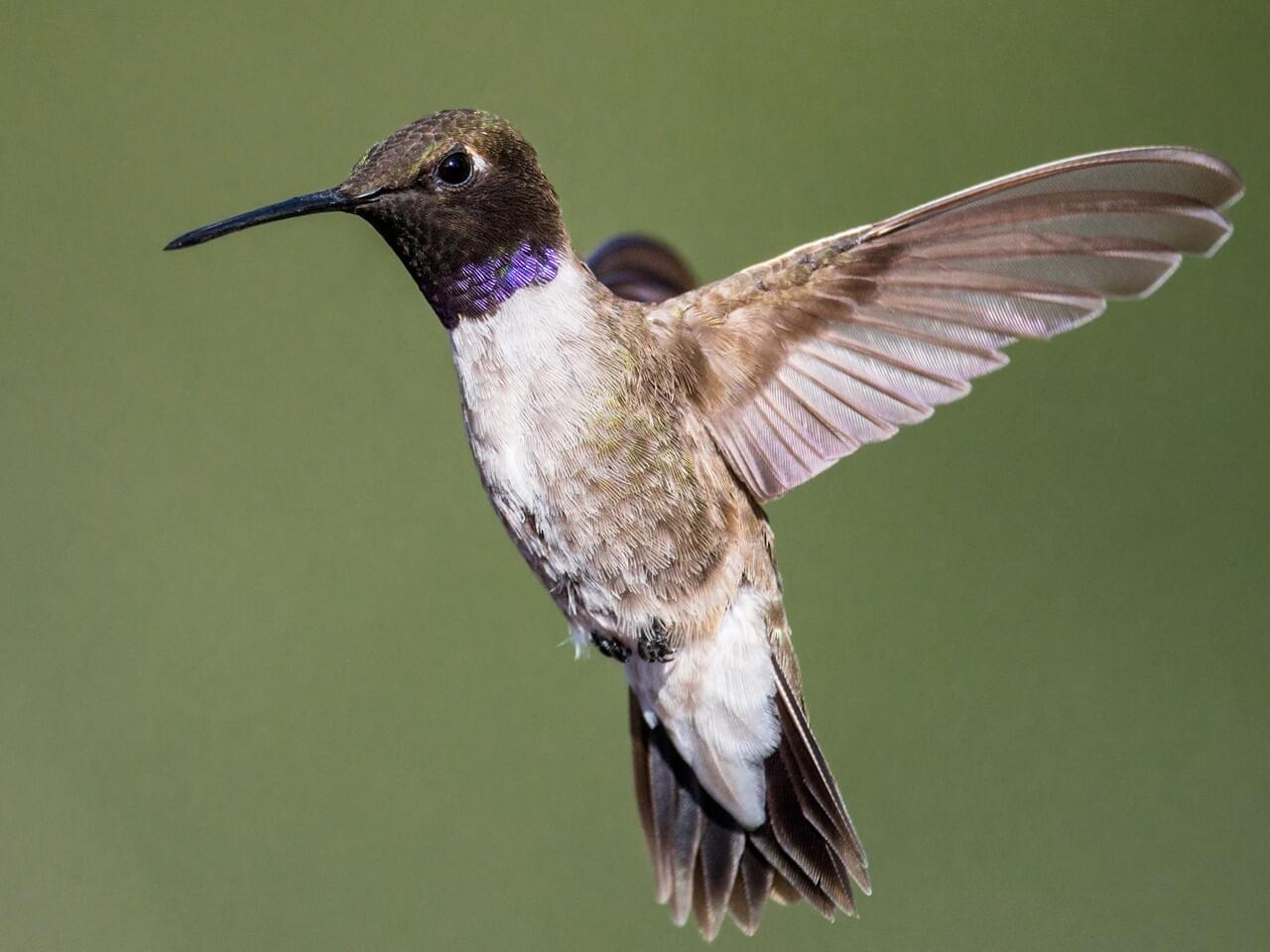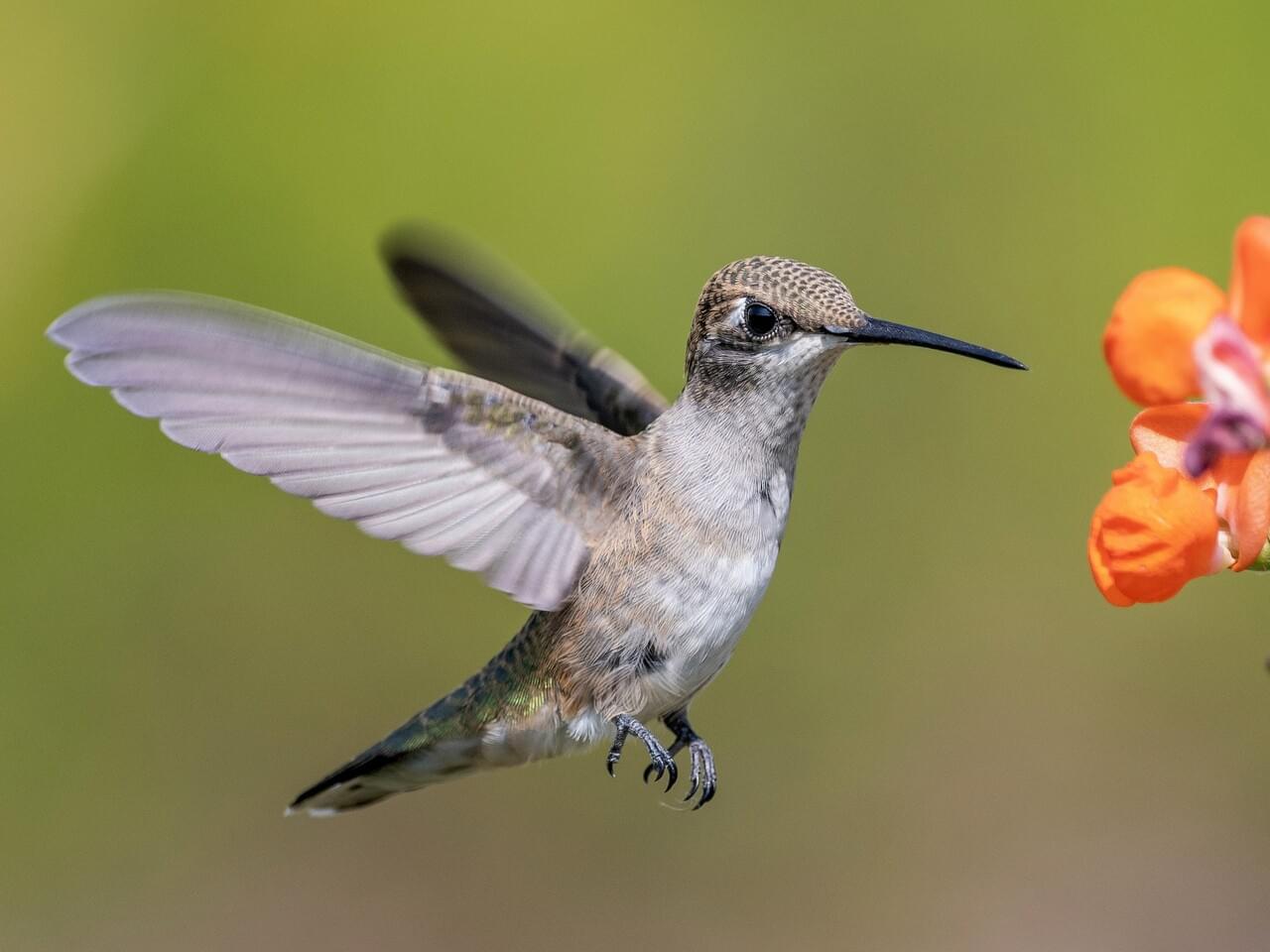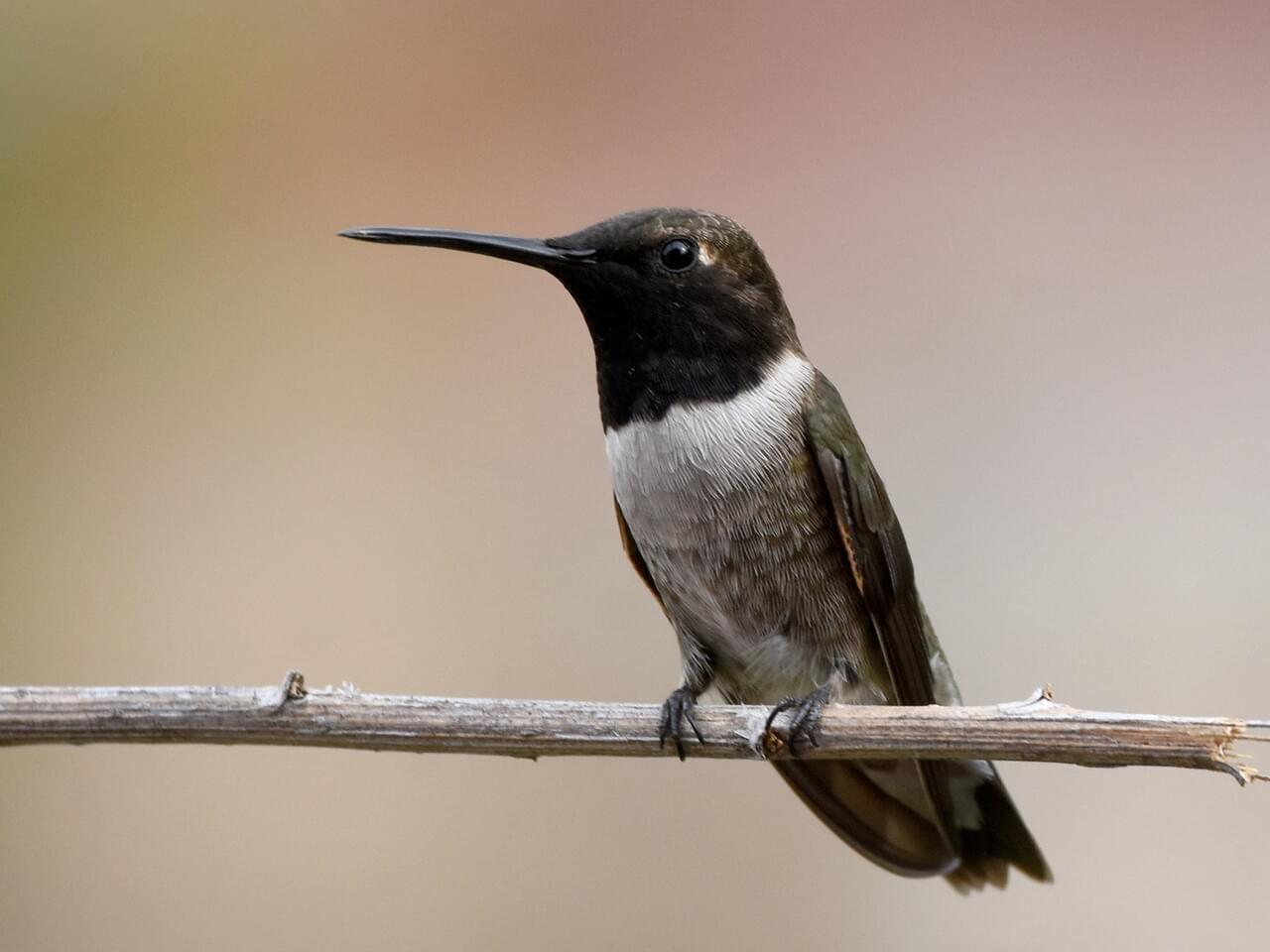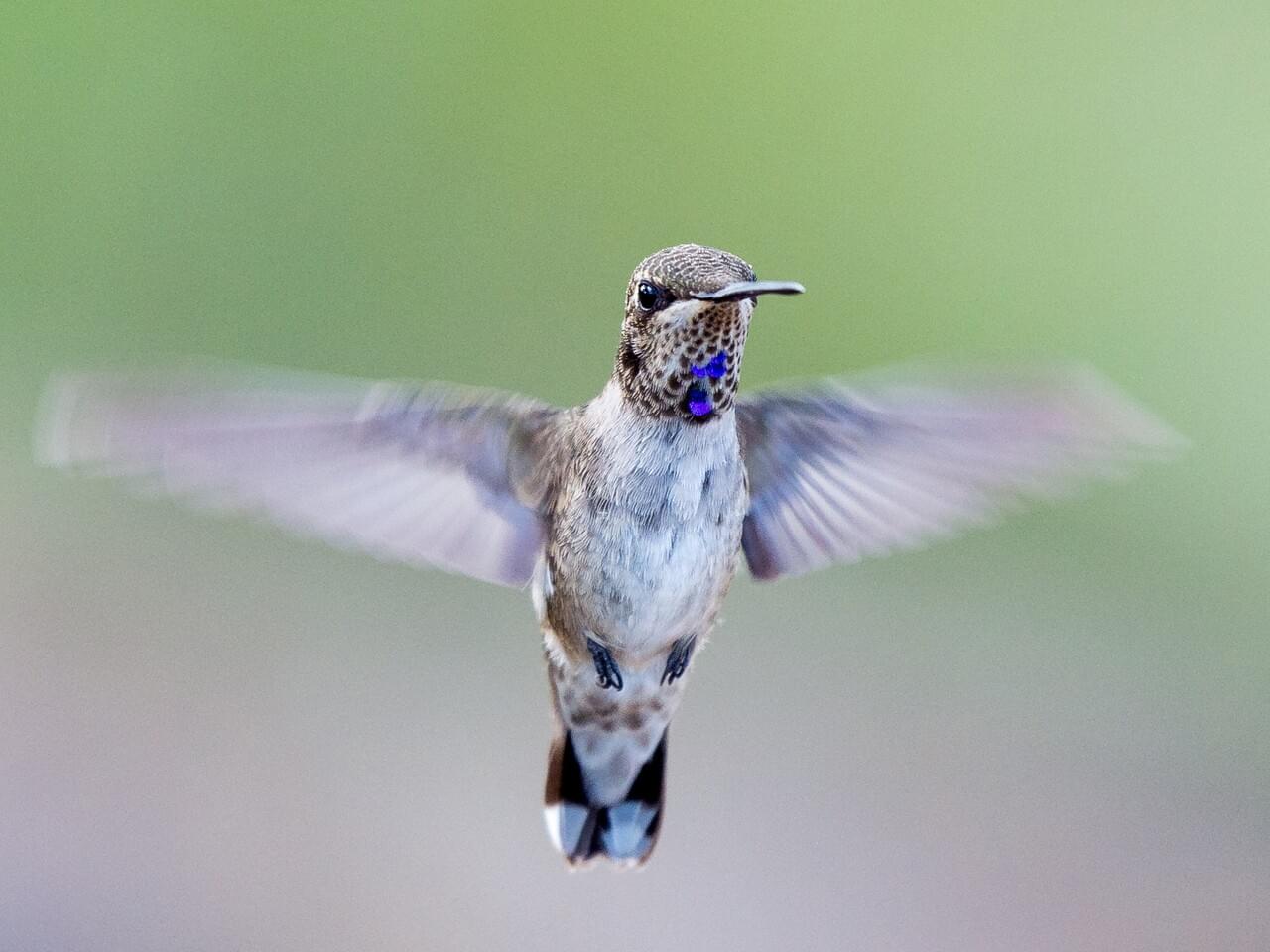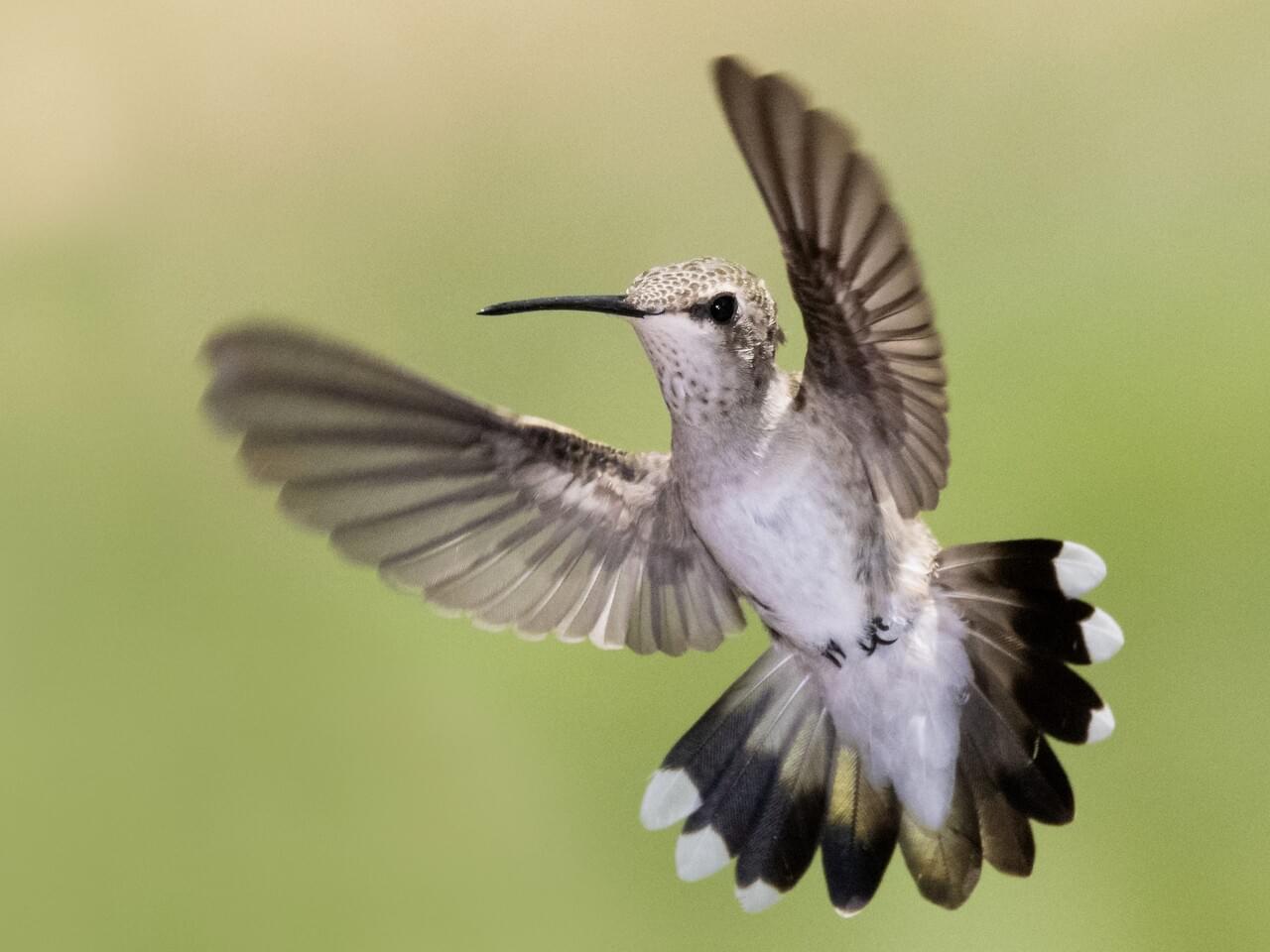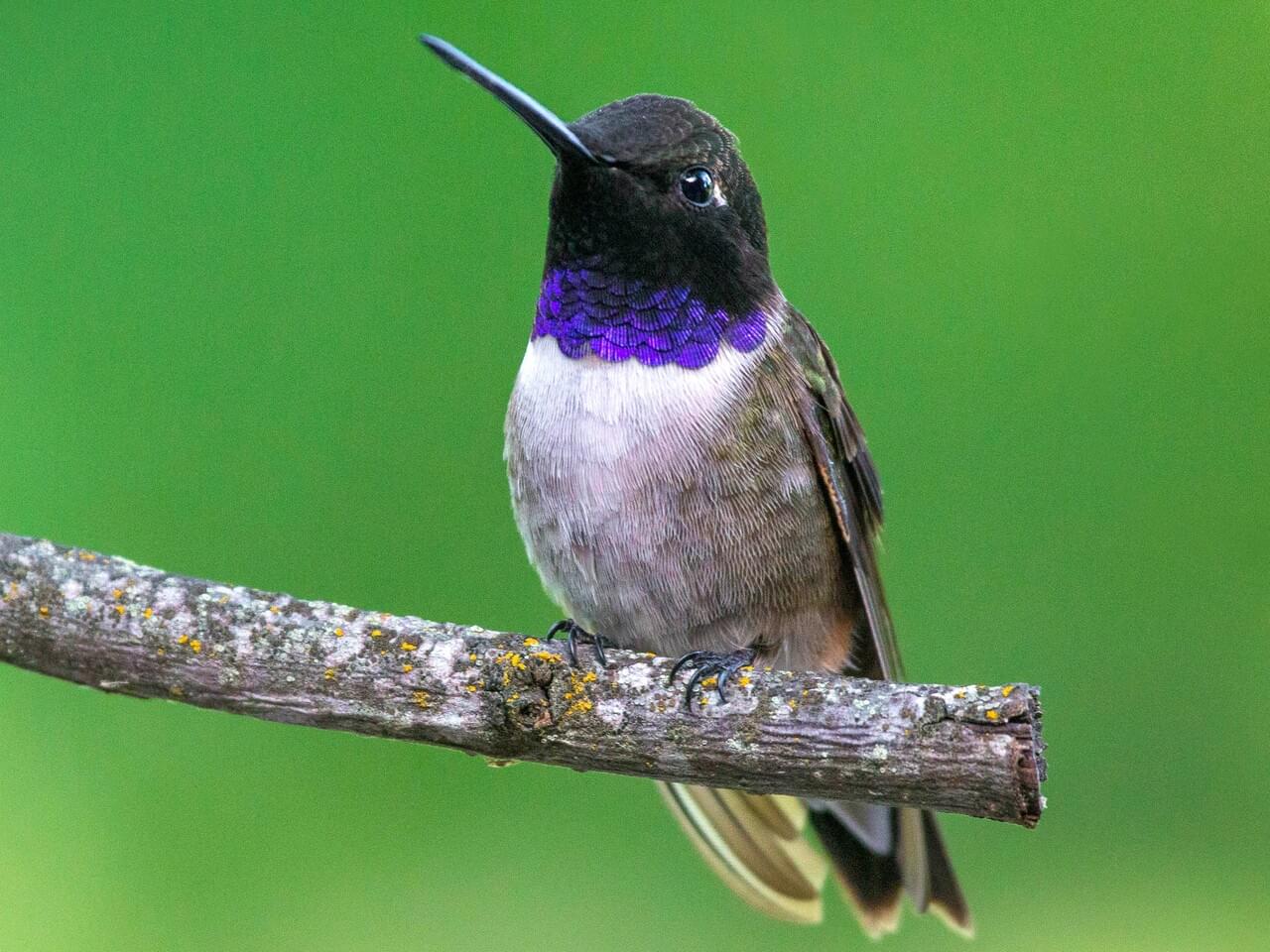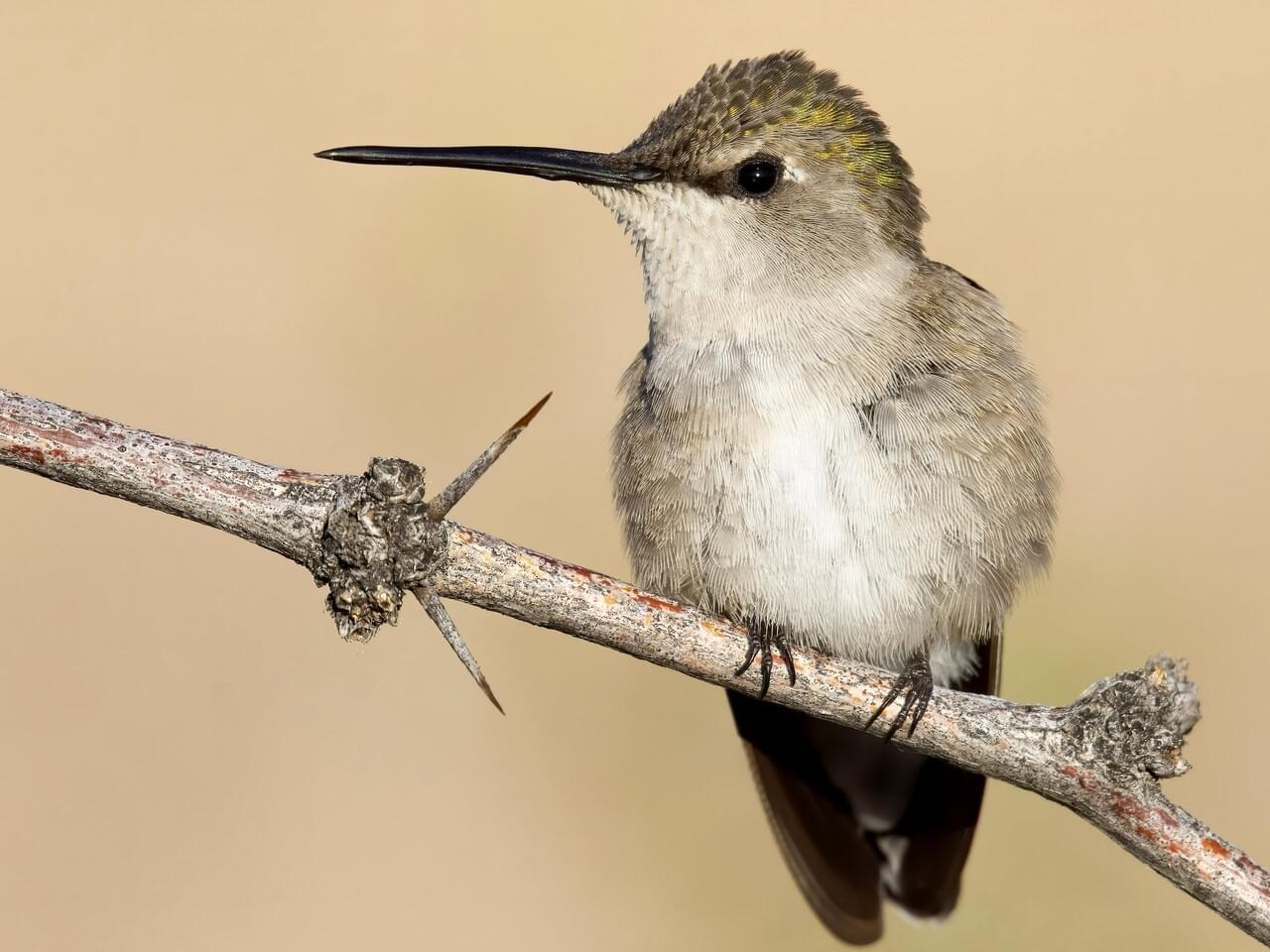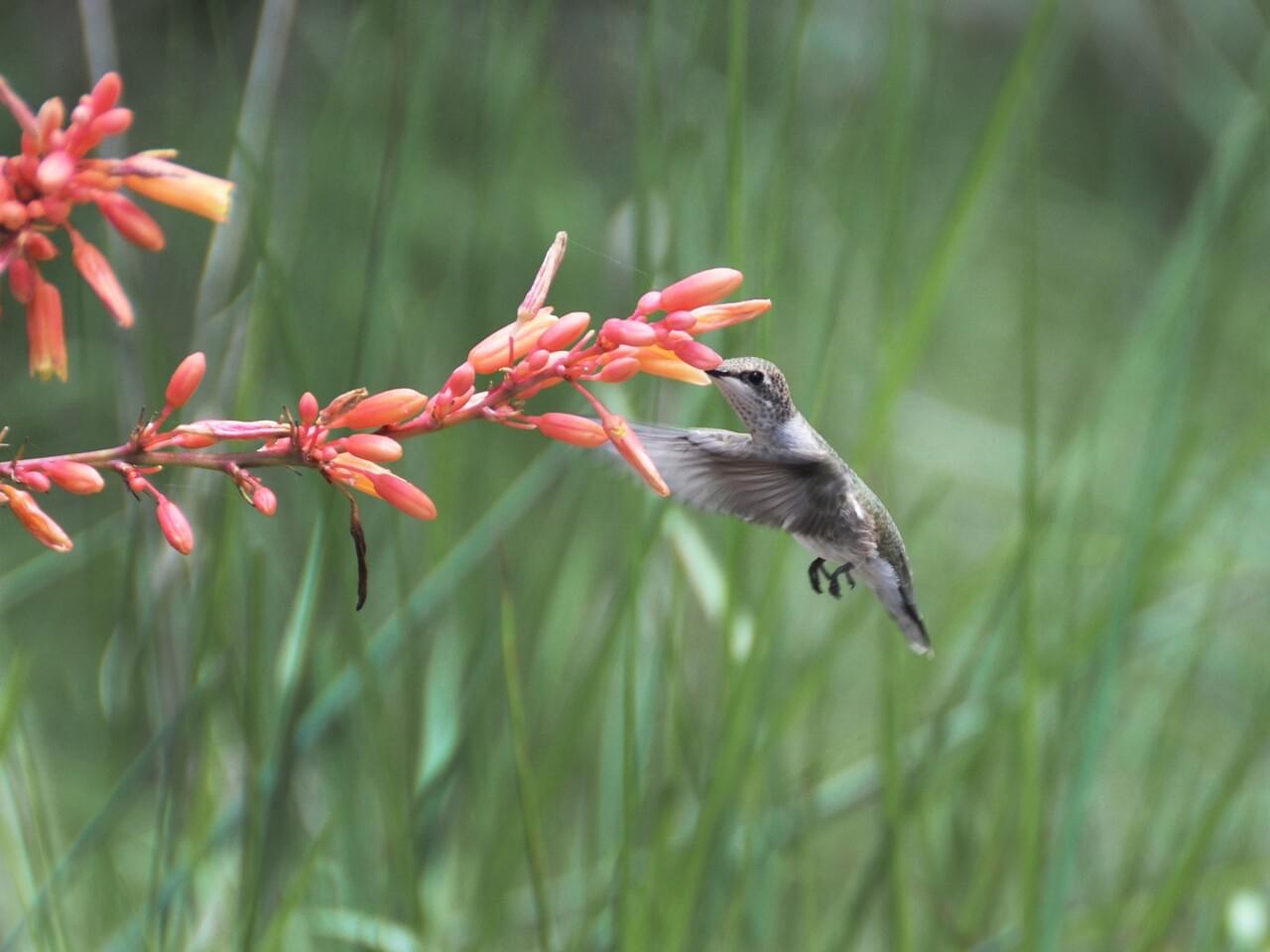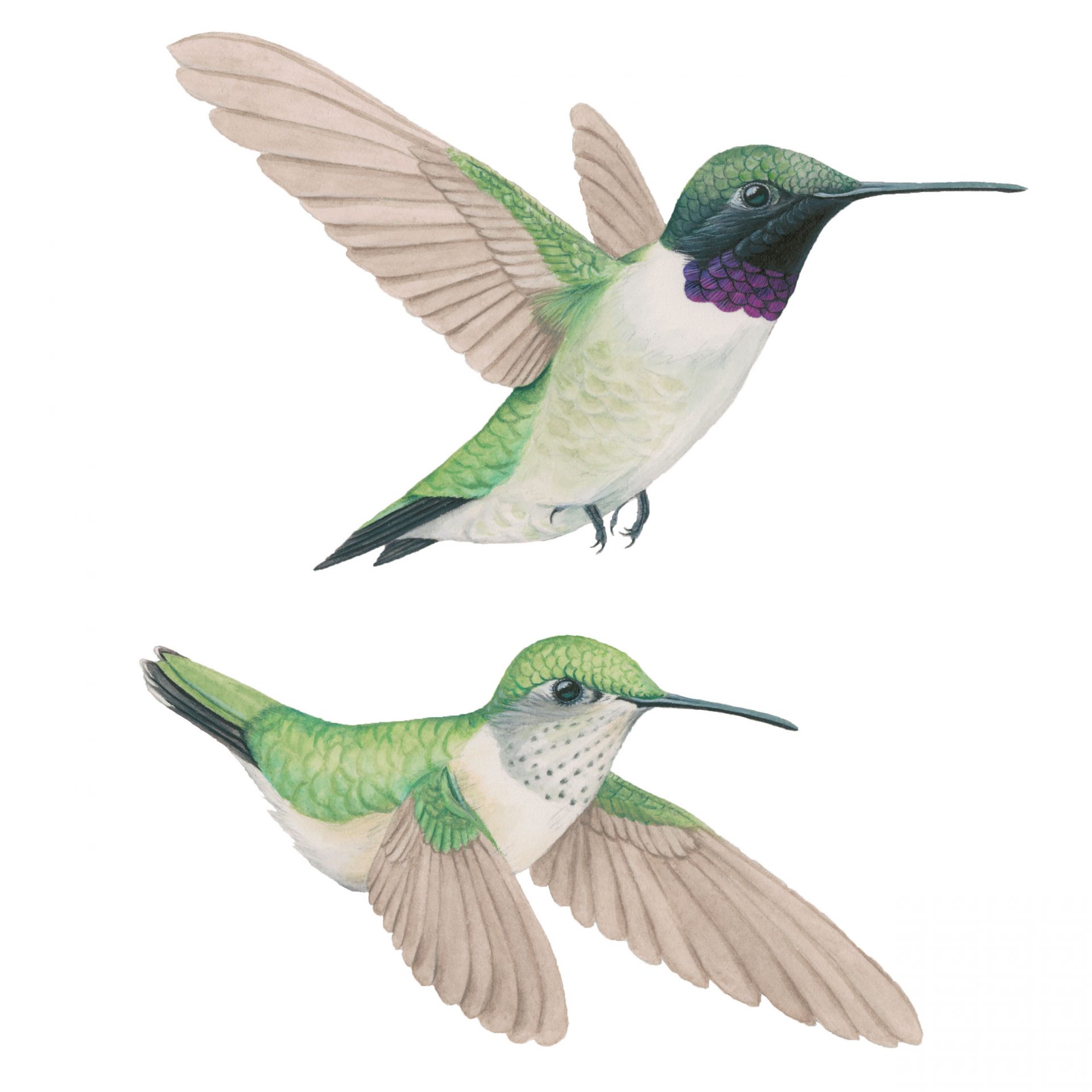 Photo ©
Liz Clayton Fuller
Photo ©
Liz Clayton Fuller
Black-chinned Hummingbird
A small green-backed hummingbird of the West, with no brilliant colors on its throat except a thin strip of iridescent purple bordering the black chin, only visible when light hits it just right. Black-chinned Hummingbirds are exceptionally widespread, found from deserts to mountain forests. Many winter along the Gulf Coast. Often perches at the very top of a bare branch. Low-pitched humming sound produced by wings.
Range
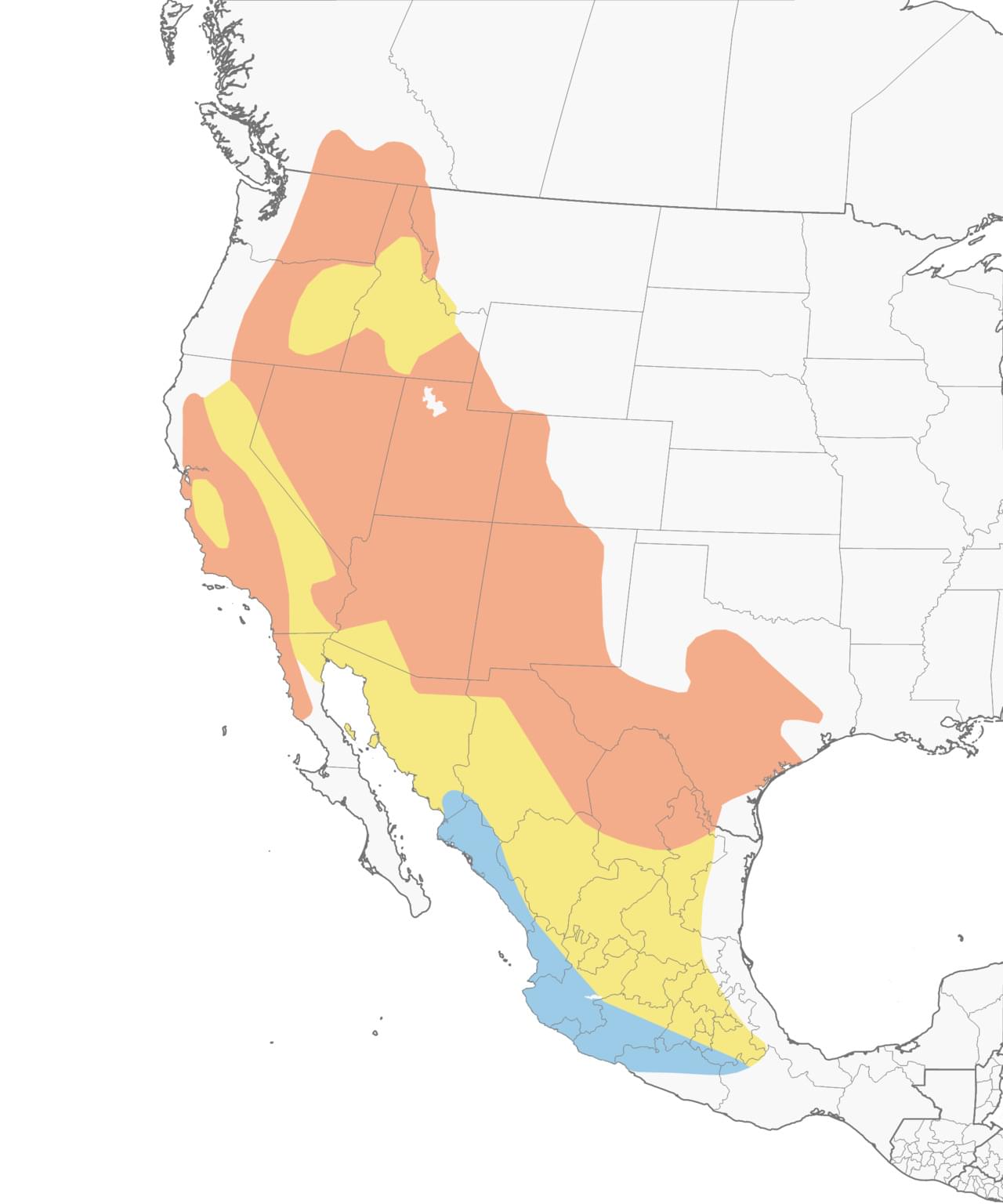
Habitat
In the Southwest, most common in canyons and along rivers. In arid areas, most often found near cottonwood, sycamore, willow, salt-cedar, sugarberry, and oak. Birds wintering along Gulf very often spend time in shade of oaks.
Food
Nectar from flowers, small insects and spiders, sugar water at feeders.
Behavior
After feeding may perch on high, bare branch for several minutes, surveying territory. Captures small insects in flight (or, in the case of spiders, while ballooning) or on flowers and even on the ground. May fly from perch to grab a single flying insect and then return to perch. May capture many insects in rapid succession in a swarm. Extracts nectar from flowers by extending tongue into the corolla while hovering. During courtship and territorial defense, males display by diving 66-100 feet.
Nesting
When newly built, the nest is a compact, deep cup constructed of plant down, spider silk and cocoon fibers. As the nestlings grow, the nest stretches into a wider, shallower cup. Nests from cooler areas are thicker-walled than nests from warmer areas.
Appearance

Typical Sound
© William W. H. Gunn / Macaulay Library
Size & Shape
A small, fairly slender hummingbird with a fairly straight bill.
Color Pattern
Dull metallic green above and dull grayish-white below. Males have a velvety black throat with a thin, iridescent purple base. Females have a pale throat. In both sexes, the flanks are glossed with dull metallic green. Female’s three outer tail feathers have broad white tips. The bill is black.
Behavior
Hovers at flowers and feeders, darts erratically to take tiny swarming insects, perches atop high snags to survey its territory, watching for competitors to chase off and for flying insects to eat. During courtship and territorial defense, males display by diving 66-100 feet.
Habitat
Most often seen at feeders or perched on dead branches in tall trees. The Black-chinned Hummingbird is a habitat generalist, found in lowland deserts and mountainous forests, and in natural habitats and very urbanized areas as long as there are tall trees and flowering shrubs and vines.
Plumage Photos
Similar Species
The male's black throat with its strip of deep purple at the base is diagnostic, but the brilliant throats of other hummingbirds can appear black in poor light, and the purple doesn't show up if the light doesn't hit it well. The entire throat and forehead of male Costa's Hummingbird and Anna's Hummingbird is purple. Costa's also has broad extensions on the sides of the gorget, which Black-chinned Hummingbirds lack. It's very difficult to distinguish female Black-chinned Hummingbirds from females of other species that occur in the same range. Black-chinned Hummingbirds tend to look long billed and thin necked, and they show a white collar when perched. To distinguish from female Ruby-throated Hummingbirds where their ranges overlap, look carefully at the outermost flight feather: it is knife-shaped in the ruby-throat but club-shaped in the black-chinned. If you notice feathery antennae jutting forward or if you see the bill rolling in and out, it is not a bird, but rather a bird-like hummingbird moth.
- As with most hummingbirds, females average larger than males, and young birds average larger than their parents.
- Along good stretches of some southern Arizona and southern New Mexico rivers, nests may be found every 100 meters or so.
- This is one of the most adaptable of all hummingbirds, often found in urban areas and recently disturbed habitat as well as pristine natural areas.
- During migration, individuals rarely remain longer than one day at a feeder even when food is scarce.
- The Black-chinned Hummingbird’s tongue has two grooves; nectar moves through these via capillary action, and then the bird retracts the tongue and squeezes the nectar into the mouth. It extends the tongue through the nearly closed bill at a rate of about 13–17 licks per second, and consumes an average of 0.61 milliliters (about a fifth of a fluid ounce) in a single meal. In cold weather, may eat three times its body weight in nectar in one day. They can survive without nectar when insects are plentiful.
- Black-chinned Hummingbirds aren’t so much drawn to red as they are to the colors of recent nectar sources.
- At rest, heart beats an average of 480 beats per minute. On cold nights they go into torpor, and the heart rate drops to 45–180 beats per minute. Breathing rate when resting is 245 breaths per minute at 91 degrees Fahrenheit; this rises to 420 breaths per minute when temperature drops to 55 degrees Fahrenheit. Torpid hummingbirds breathe sporadically.
- A Black-chinned Hummingbird’s eggs are about the size of a coffee bean. The nest, made of plant down and spider and insect silk, expands as the babies grow.
- The oldest known Black-chinned Hummingbird lived to be 10 years 1 month old.
